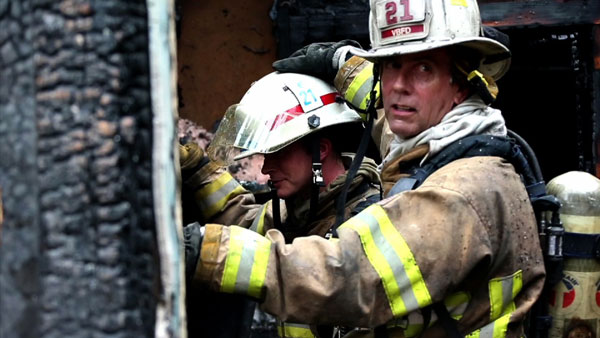By Michael J. Barakey
To be a successful leader, one must have prepared, gained wisdom, and had effect. Why are individuals or groups of individuals successful despite the odds or the obvious outcome not appearing favorable? These individuals have prepared–prepared many hours through training, simulating, and studying. These individuals are successful because they possess the wisdom gained through the experience of performing, through repetitious actions and by experiencing rare and challenging events. Teams succeed when leaders place members in positions to thrive, produce, and learn. Effect is the product of a properly prepared team with the experience or wisdom to succeed. How can we ensure individuals and teams succeed in complex and stressful environments, gain the wisdom necessary to succeed in the future, and prepare future leaders?
THREE TRAITS
First, being a leader does not come with position, title, or rank. Leadership is not absolute; situations dictate response, and leaders react, make decisions, continually reevaluate performance, and alter objectives and tactics as required. Since the fire service is a dynamic profession, leadership is required, expected, and, when absent, extremely noticeable. We prepare for the “what if” call, situation, or incident. We spend many hours training, discussing, and executing for the moment that we can make a difference. It is unrealistic to expect people to lead who have not prepared. It is improbable that the result of a dynamically changing event will be positive if preparation was not a focus, and previous performance was not evaluated. Leaders not only prepare, they are continually being evaluated and have a strong desire to increase output with every decision.
Wisdom is the process of learning, not from textbooks or classroom settings, but from the real-life scenarios for which decision are made, and made with consequence. Gaining wisdom means that there was a cause and effect. Wisdom is derived from the positive or negative outcome that occurs following a decision. Not all decisions are life or death or have the same level of criticality. Wisdom is cumulative; we don’t have to gain it on one incident or situation. We have the opportunity to gain wisdom over time, using different assignments and mentors to build this trait.
Many decisions made on the fireground lead to outcomes that will be questioned and scrutinized. Why did you attack the fire from that side? What was the logic of laying-in and not going immediately for the rescue? These types of discussions allow everyone on the fireground the opportunity to gain wisdom. Rapidly progressing incidents offer many lessons and opportunity for growth from all the responders. The wisdom gained after critiquing an incident may not be understood at the time, but never underestimate the power of small pieces of wisdom gained (photo 1). The idea is that wisdom is not only gained by the person making the decision, yet shared by all who were at the incident–this demonstrates the power of critiquing incident scenes. Wisdom is an important piece of a leader’s growth, so share wisdom gained with eager learners. As a leader, you must be able to gain wisdom, learn from every incident, execute better each time you are presented with a like problem, and, finally, be able to take criticism. Criticism is designed not to sabotage future outcomes, but to ensure wisdom is gained.

(1) Wisdom gained on the fireground is passed from senior officers to junior officers (Photo by Kirk Kellerhals of the Virginia Beach (VA) Fire Department).
The final trait of a leader is effect. You must have some kind of effect to be a leader. A simple way to understand the value of effect is to look at the word “meets.” If you are a person who desires just to “meet” expectations, you are not demonstrating leadership qualities. What kind of effect does a person have if they just provide or deliver mediocrity? When a leader wakes in the morning, do you think they say, “I desire a bland day with no expectation to make a difference or better myself or others?” Probably not, as I am convinced a leader would be much more productive, seeking opportunity, and desiring to have effect. As a leader in the fire service, seek effect. Achieving is having effect. Having the desire to perform and be the best and passing wisdom on to your crew is highly effective. Having effect is measurable; so set goals with your company and gauge the effect you are having with your crew. Effect is not always measurable with numbers or tangible outcomes. Measurements are an easy way to evaluate performance based on previous performance and are easy to compare. But leadership is so much more than increasing or decreasing a measureable item. Effect can be increasing communication and moral while decreasing tension and fear. Leaders are able to capture effect, place value on teamwork, and achieve.
Leadership is about turning around and looking behind you to see if indeed anyone is there! Leadership is about the ability of individuals to prepare; prepare as if every opportunity is an opportunity to make a difference. Leadership is about the ability to gain wisdom from assignments, teams, clubs, committees, and events. Leadership is about being effective, performing, and providing positive change when it is needed. Leadership is about not only seeking evaluation, but also understanding that criticism is a culture that professionals desire.
MENTORSHIP
The three traits of leadership are solidified with the introduction of a mentor. Great leaders have great mentors. That relationship fosters the growth and development of the future leader as the mentor has the opportunity to share wisdom, and provide advice with regards for preparing for schools, classes, and assignments that are necessary for the development. For any relationship to work, communication is key. The best way to foster a mentor/student relationship is to have a relationship that is free of judgment or consequence and one that understands forced mentorship is likely to fail.

(2) Three traits of an effective leader: Preparation, Wisdom, and Effect.
Make the effort to identify mentors that communicate well and provide future leaders in your organization with real opportunities to learn from the wisdom they have gained. Reward members of the organization who are preparing and gaining wisdom through experiences and through a mentor who desires to share, educate, and provide knowledge.
By understanding the three traits needed to be an effective leader, an organization can prepare its members for success. Allow preparation opportunities for your members. Allow members to gain the training, courses, and experiences necessary to prepare for future assignments. Make sure wisdom can be gained. Allow the opportunity for members to work on busy companies; combat cannot be experienced at all assignments in each department. Training and education alone cannot provide wisdom. Provide members the opportunity to practice their skills on the fireground and remember mentorship, the key to share the wisdom of others with the members preparing for the future. This will allow for effective decisions and fire scenes that are smooth, efficient, and safe.
MICHAEL J. BARAKEY is a district chief with the Virginia Beach (VA) Fire Department, where he is assigned to personnel and development. Previously, he was assigned to operations and training. He is a hazmat specialist, an instructor III, an ationally registered paramedic, and a neonatal/pediatric critical care paramedic for the Children’s Hospital of the King’s Daughters in Norfolk, Virginia. Barakey is a plans team manager for the VA-TF2 US&R team and has a master’s degree in public administration from Old Dominion University in Norfolk, Virginia. He is a classroom instructor at FDIC.

